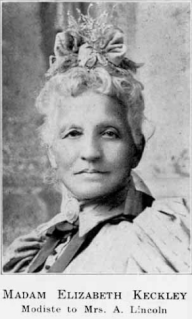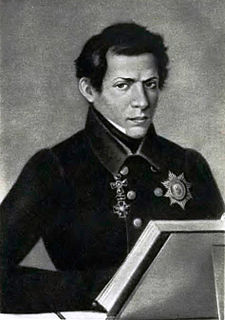A Quote by Elizabeth Keckley
None of us are perfect, for which reason we should heed the voice of charity when it whispers in our ears, "Do not magnify the imperfections of others.
Related Quotes
At times many of us let that enemy of achievement--even the culprit 'self-defeat'--dwarf our aspirations, smother our dreams, cloud our vision, and impair our lives. The enemy's voice whispers in our ears, 'You can't do it.' 'You're too young.' 'You're too old.' 'You're nobody.' This is when we remember that we are created in the image of God. Reflection on this truth provides a profound sense of strength and power.
What assurance have we that our masters will or can keep the promise which induced us to sell ourselves? Let us not be deceived by phrases about 'Man taking charge of his own destiny'. All that can really happen is that some men will take charge of the destiny of the others. They will be simply men; none perfect; some greedy, cruel and dishonest. The more completely we are planned the more powerful they will be. Have we discovered some new reason why, this time, power should not corrupt as it has done before?
The explanations for the things we do in life are many and complex. Supposedly mature adults should live by logic, listen to their reason. Think things out before they act. But maybe they never heard what Dr. London told me one, Freud said that for the little things in life we should react according to our reason. But for really big decisions, we should heed what our unconscious tells us.
In geometry I find certain imperfections which I hold to be the reason why this science, apart from transition into analytics, can as yet make no advance from that state in which it came to us from Euclid.
As belonging to these imperfections, I consider the obscurity in the fundamental concepts of the geometrical magnitudes and in the manner and method of representing the measuring of these magnitudes, and finally the momentous gap in the theory of parallels, to fill which all efforts of mathematicians have so far been in vain.
How our story has been divided up among the truth-telling professions! Religion, philosophy, history, poetry, compete with each other for our ears; and science competes with all together. And for each we have a different set of ears. But, though we hear much, what we are told is as nothing: none of it gives us ourselves, rather each story-kind steals us to make its reality of us.
When we want to help the poor, we usually offer them charity. Most often we use charity to avoid recognizing the problem and finding the solution for it. Charity becomes a way to shrug off our responsibility. But charity is no solution to poverty. Charity only perpetuates poverty by taking the initiative away from the poor. Charity allows us to go ahead with our own lives without worrying about the lives of the poor. Charity appeases our consciences.



































